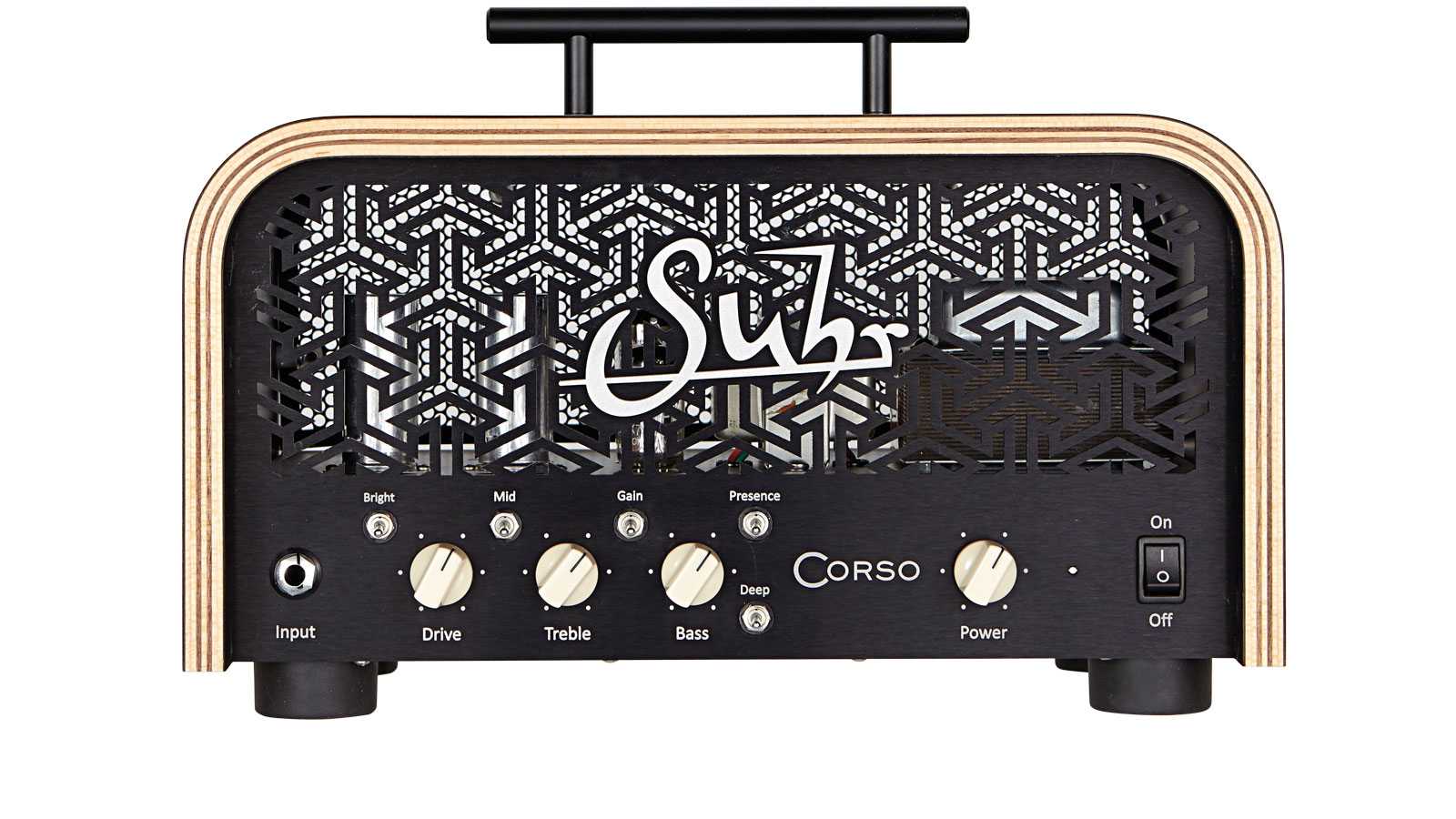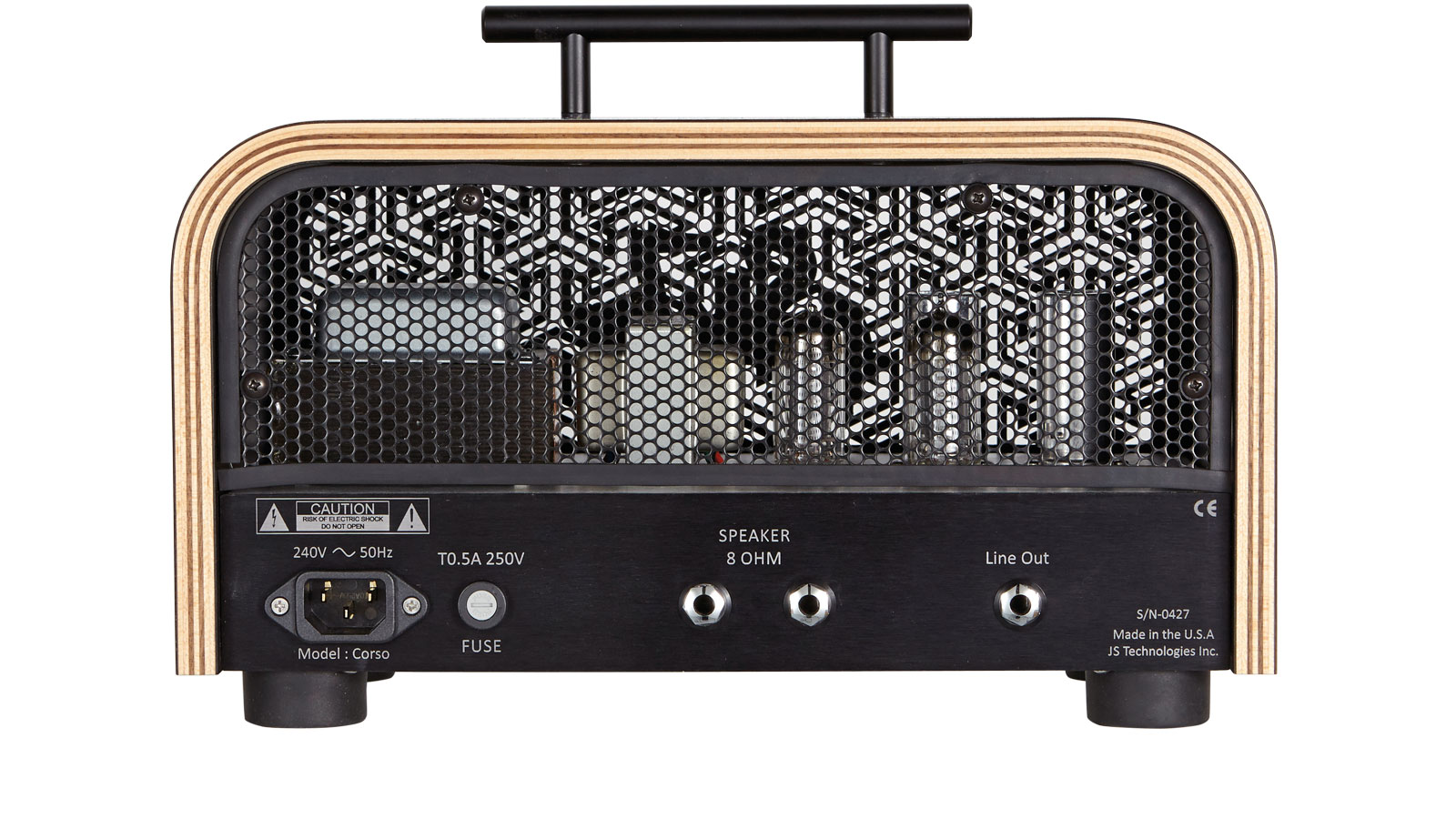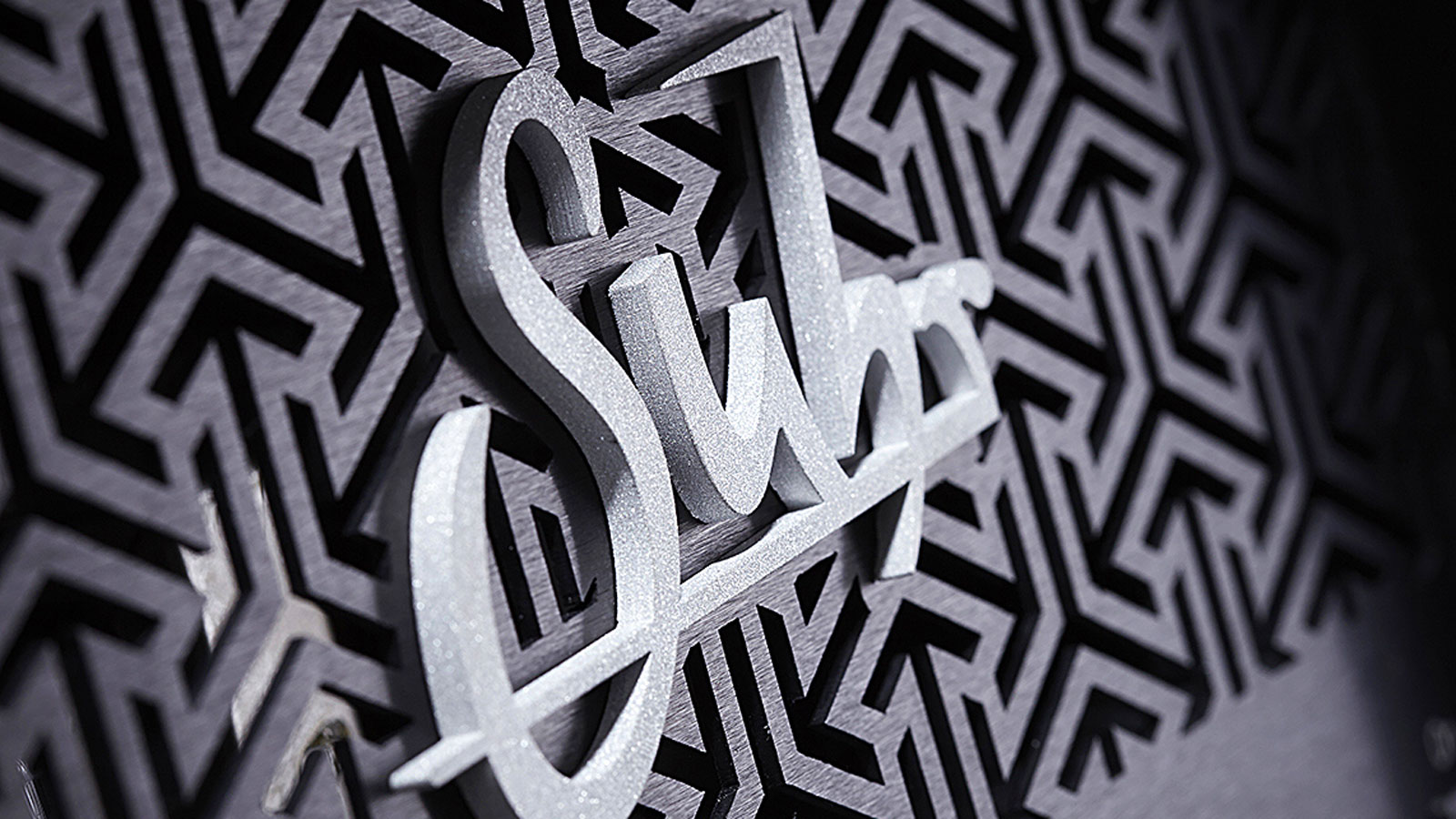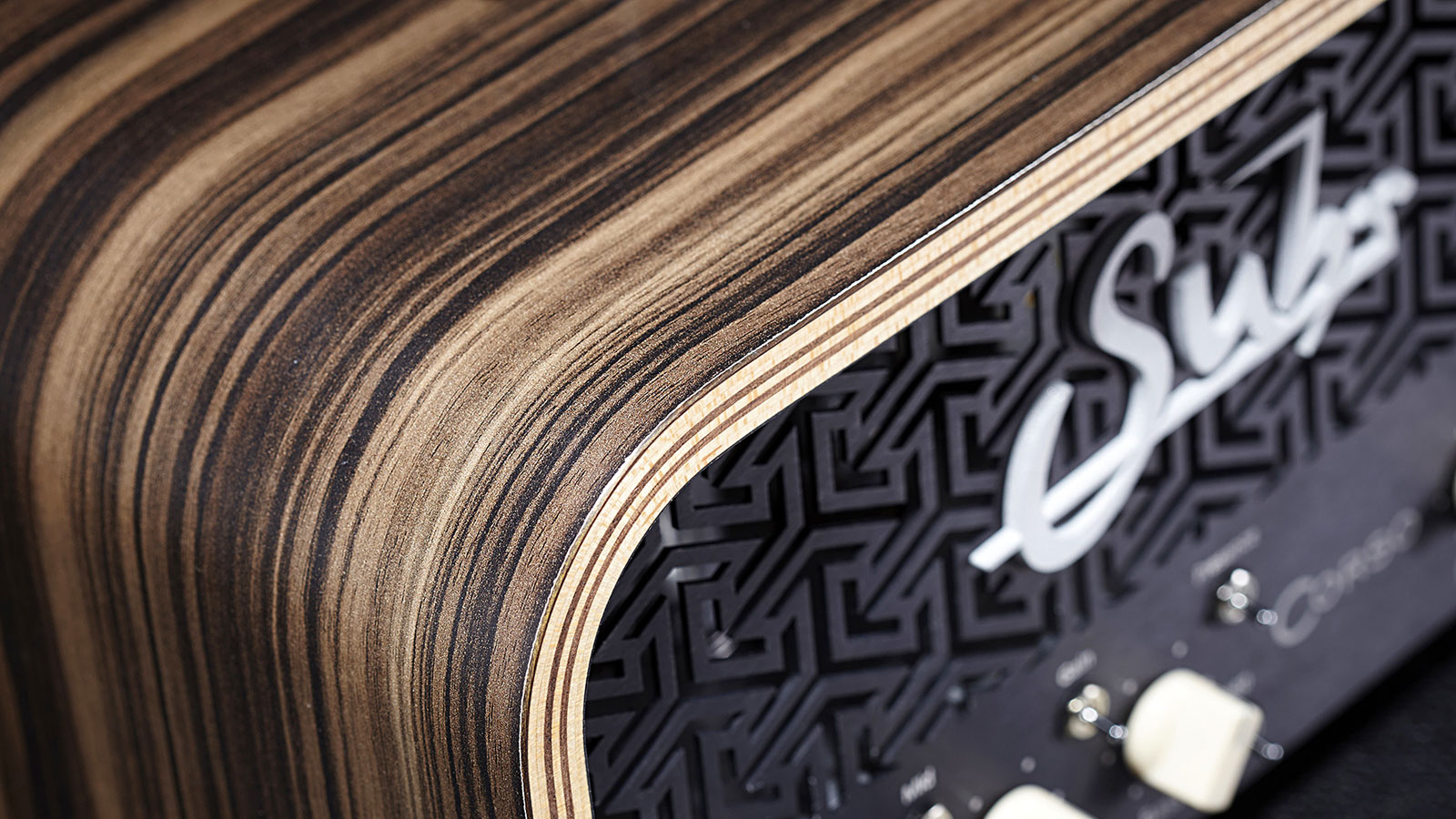MusicRadar Verdict
A fantastic recording amp that looks good in any setting.
Pros
- +
Excellent build. Modern, different looks. Superbly flexible tones. Relatively good value.
Cons
- -
5-watt power rating means it's studio/home use only.
MusicRadar's got your back

Suhr Corso

Rear

Grille

Grain
The Suhr range of products includes guitars, pedals, and some very tasty amps; we're looking at one of them here, in the form of the Corso recording amplifier.
The Corso head is intended for home and studio use, and has a distinctive design, with a seven-ply wood cover topped with a cocobolo-effect laminate, teamed with a choice of two laser-cut anodised front panels.
"You can shape practically any tone you want with consistent precision"
Inside the aluminium chassis, the electronics are mounted on two printed circuit boards: one sat behind the control panel that holds all the knobs and switches except the Power control, and a main board that holds most of the pre- and power-amp circuitry.
The amp is an innovative single-channel design driving a pair of 12BH7 output valves, with controls for drive, power, bass and treble, and five tone-altering switches: presence, bright, mid, gain and deep, which between them can be used for subtle fine tuning or more drastic changes.
Lurking behind the power control is a large wire-wound pot that acts as an attenuator, allowing full control of the Corso's output wattage from zero to five watts. Turned fully anti-clockwise, it also functions as a load, so the Corso's line out can be used without the need for a loudspeaker cabinet.
Sounds
The Corso's recording tag means that above all else it needs to be as noise-free as possible, and thanks to good design and high-quality components, it's practically silent, with no hum and just a little hiss in the higher-gain region.
Unlike with some other similar designs, all the mini toggle switches contribute something meaningful to the Corso's sound, adding brilliance and snap, fat midrange or extended bass, along with a serious 12dB gain boost that will please heavy rock and metal players.
Combined with the smooth, predictable response of the treble and bass tone controls, you can shape practically any tone you want with consistent precision, from vintage tweed and 'blackface' cleans that flatter single coils, through to fat medium-gain classic-rock crunch and lead tones that work superbly well with PAF-style humbuckers, all the way up to modern high-gain stuff with extended bass that can handle baritone and detuned instruments.
It sounds great at lower volume levels. However, the wire-wound volume pot jumps slightly from zero to on, with 'on' being just a touch too loud for late-night practice.
Overall, the Corso's sonic transparency and wide-ranging EQ means it can sound quite close to any amp you want. It goes without saying that this kind of quality doesn't come cheap, but considering it's handmade in the USA, we'd say the price is fair for what's on offer.
“A synthesizer that is both easy to use and fun to play whilst maintaining a decent degree of programming depth and flexibility”: PWM Mantis review
“I feel like that song had everything we needed to come back with”: Bring Me The Horizon’s Lee Malia on Shadow Moses, its riff and the secrets behind its tone, and why it was the right anthem at the right time
“I said, ‘Are we sure we can write a song about death?’”: The story of Mike + The Mechanics' classic No.1 The Living Years









